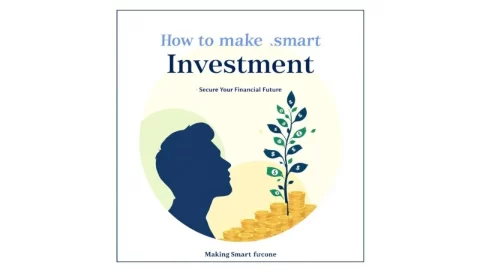Imagine waking up to rent checks hitting your bank account while your properties appreciate in value over time. For many successful investors, real estate has been the key to building generational wealth and achieving true financial independence.
Unlike volatile stocks or savings accounts with minimal returns, real estate offers tangible assets, cash flow, and tax advantages that can accelerate your path to financial freedom. Whether you dream of quitting your 9-to-5, retiring early, or securing a stable income stream, this guide will show you why real estate investing might be your best move.
The Power of Real Estate for Building Wealth
Why Real Estate Outperforms Other Investments
Compared to stocks, bonds, or savings accounts, real estate provides:
Cash flow (monthly rental income)
Appreciation (property values rise over time)
Leverage (using mortgages to control large assets)
Tax benefits (deductions, depreciation, 1031 exchanges)
Historical Proof of Real Estate’s Strength
Over the past century, U.S. real estate has averaged 4-6% annual appreciation, with rental demand consistently growing. Even during recessions, well-located properties retain and regain value.
Different Ways to Invest in Real Estate
Rental Properties (Long-Term Cash Flow)
Single-family homes (easy to manage, high demand)
Multi-family units (scalable income with duplexes or apartment buildings)
Vacation rentals (higher short-term rental income)
Fix-and-Flip (Short-Term Profit Strategy)
Buy undervalued properties, renovate, and sell for a profit.
REITs (Real Estate Investment Trusts)
Invest in large-scale real estate portfolios without managing properties yourself.
Wholesaling (Low-Capital Entry Point)
Find off-market deals and assign contracts to cash buyers for a fee.
How Real Estate Creates Passive Income
The Magic of Cash-Flowing Rentals
A well-chosen rental property can:
Cover mortgage payments through tenant rent
Generate extra monthly income after expenses
Appreciate over time, increasing your net worth
Scaling for Financial Freedom
Many investors start with one rental property, then reinvest profits to acquire more—eventually replacing their full-time income.
Leverage: The Investor’s Secret Weapon
Using Other People’s Money (OPM)
Banks will finance 70-90% of a property’s value, meaning:
You control a 300Kassetwithjust30K down
Tenants pay off your mortgage over time
Equity builds without using your own cash
The Power of Compound Growth
As rents increase and mortgages get paid down, your cash flow and equity multiply—accelerating wealth faster than traditional investing.
Tax Advantages That Boost Your Returns
Key Tax Benefits of Real Estate Investing
Mortgage interest deductions
Depreciation write-offs (even if the property appreciates)
1031 exchanges (defer capital gains taxes when reinvesting profits)
Lower tax rates on long-term gains
How Investors Legally Reduce Taxable Income
Strategic deductions can turn paper profits into tax-neutral or even tax-negative returns.
Common Mistakes New Investors Make (And How to Avoid Them)
Pitfalls That Can Derail Your Success
Overpaying for properties (failing to run proper numbers)
Underestimating expenses (maintenance, vacancies, repairs)
Poor location choices (low demand = bad cash flow)
Emotional decisions (buying based on feelings, not data)
Smart Investor Habits
Analyze deals with the 1% Rule (monthly rent should be 1% of purchase price)
Build a reliable team (agents, contractors, property managers)
Start small and scale safely
Getting Started: First Steps to Your First Investment
How to Begin with Limited Capital
House hacking (live in one unit, rent the others)
FHA loans (3.5% down for multi-family homes)
Partner with private lenders
Where to Find Great Deals
Foreclosures and auctions
Off-market properties (direct mail, networking)
Wholesale deals
Frequently Asked Questions (FAQs)
How much money do I need to start investing in real estate?
You can begin with as little as 10K−20K using FHA loans, partnerships, or creative financing strategies.
Is real estate investing risky?
All investments carry risk, but proper research, location selection, and financial cushion minimize downsides.
Can I invest in real estate while working full-time?
Yes! Many investors start part-time and use property managers to handle day-to-day operations.
What’s better: flipping or rental properties?
Rentals build long-term wealth, while flipping generates quick cash. Many investors do both.
How do I find trustworthy property managers?
Interview multiple candidates, check reviews, and start with a trial period before committing.
Conclusion
Real estate investing remains one of the most reliable paths to financial freedom—offering cash flow, appreciation, leverage, and tax advantages unmatched by other assets. While it requires education, patience, and smart decision-making, the rewards can be life-changing.
Your journey starts today. Research your market, connect with experienced investors, and take that first step toward building wealth through real estate.






